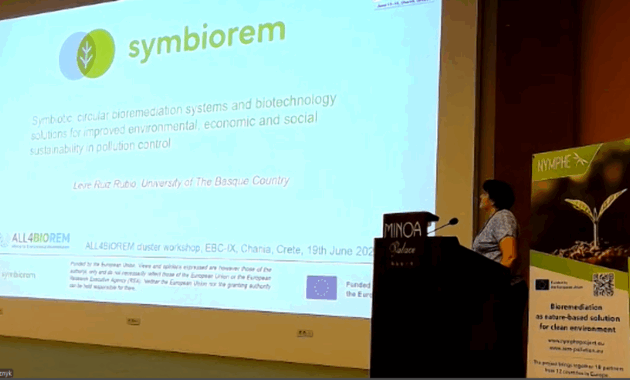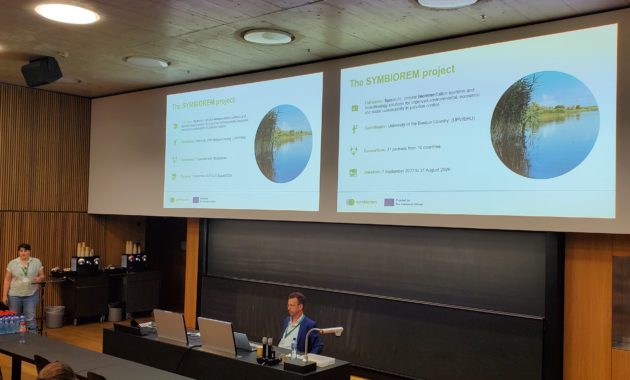The European Bioremediation Conference, arrived at its 9th edition, welcomed in the beautiful location of Chania, Crete, major scientists and multidisciplinary experts from all over the world to present their findings and discuss the progress in environmental remediation technologies, particularly on bioremediation and phytoremediation of polluted sites.
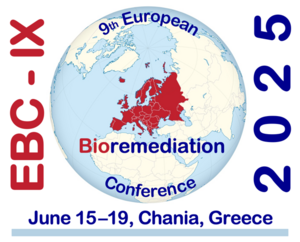
It took place between 15 and 19 June and it was co-organised by the Technical University of Crete and the University of Bologna and co-chaired by professors Nicolas Kalogerakis and Fabio Fava. This was the perfect occasion for the organisation of the third annual workshop of the EU-funded bioremediation projects, which in December 2024 formalised their collaboration with the foundation of the platform Alliance for Environmental Bioremediation (ALL4BIOREM).
After attending Bioremid2023 in Muttenz (Swizterland) and BioBio2024 in Prague, the members of the EU-funded bioremediation projects travelled to Chania not only to showcase the achievements and results of their projects, but to gather for the co-organised session titled The contribution of environmental bioremediation to the Clean Industrial Deal, the last event of the conference.
The event started with an overview by Elisabetta Balzi (European Commission – DG RTD) on the EU funding policies and priorities on bioremediation and environmental biotechnology, which was followed by a series of short pitches by each ALL4BIOREM project representatives, who highlighted objectives, current activities and achievements of each project. Check out SYMBIOREM presentation by our coordinator Leire Ruiz Rubio (University of the Basque Country) here.
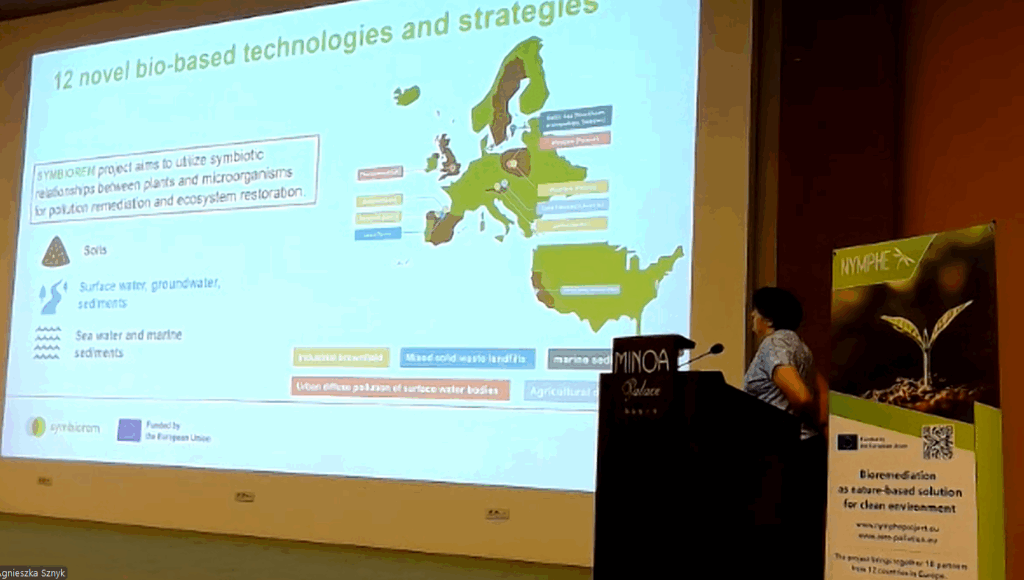
The second part of the session was dedicated to two panel discussions, moderated by Fabio Fava and Philippe Corvini: the first part covered the topic of microbiomes and their relevance for bioremediation, in terms of new technological developments, the potential and challenges in their use, and related policy implications. The second panel discussed the future of bioremediation research in Europe, with a focus on how to ensure a stronger link between environmental bioremediation and the concepts of one health and ecosystem restoration, reflecting also the potential role of the ALL4BIOREM cluster in the definition and of future R&I priorities in the EU.
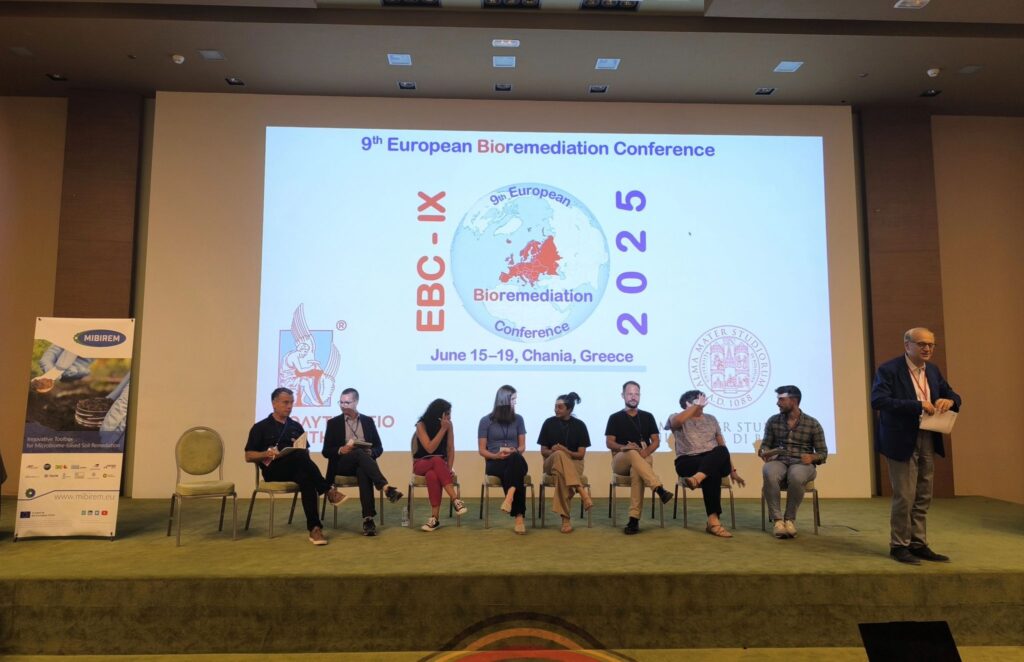
As a conclusion, the position paper co-signed by the ALL4BIOREM projects as a response to the European Commission’s consultation on the EU Bioeconomy Strategy was presented by Agnieszka Sznyk, communication manager of the NYMPHE project. This paper, titled Harnessing Environmental Biotechnology for a Resilient and Sustainable Bioeconomy, aims to advocate for environmental biotechnology, and in particular for bioremediation, as one of the essential foundation of the EU bioeconomy strategy, by highlighting how this sector is no longer an emerging field, but it is as a strategically vital sector that supports European “resilience, competitiveness, and long-term sustainability across policy domains”.
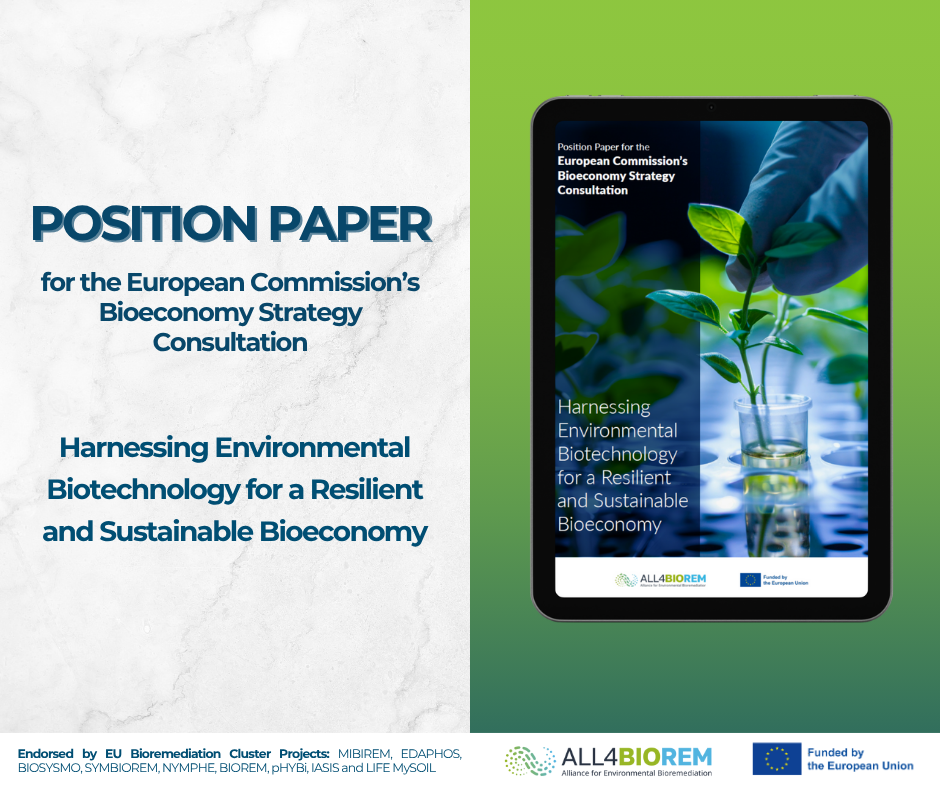
- For a detailed report of the event, check out the summary made by the colleagues of NYMPHE.
- For the full recording of the event, go on the SYMBIOREM Youtube channel.
The participation of SYMBIOREM at the ALL4BIOREM cluster session was not the only contribution to sessions provided by project partners. As a contributor to the session dedicated to Phytoremediation and bioremediation of metals, Krzysztof Lejcuś of the Wroclaw University of Life Sciences and Environment presented about biodegradable WAG (Water Absorbing geocomposite) and initial SYMBIOREM results from greenhouse and field experiment, which confirm that BioWAG and consortium of microorganisms are effective for phytoextraction of heavy metals (presentation available here).
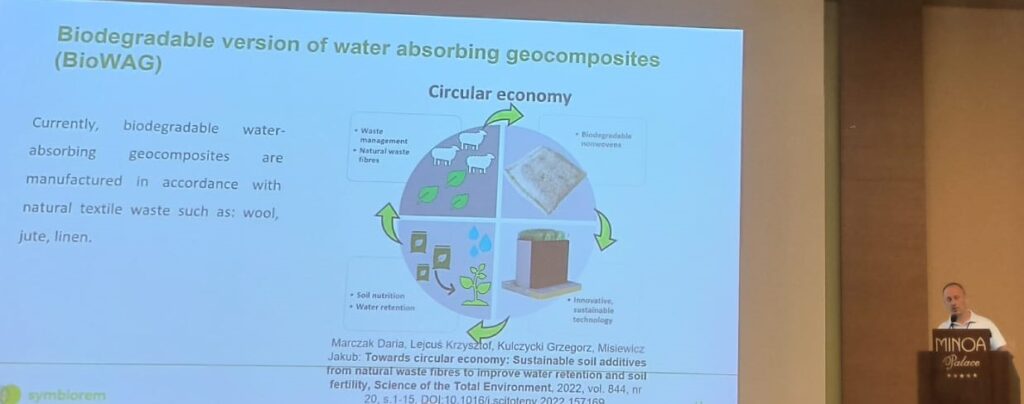
The SYMBIOREM partners also contributed to the poster session of the conference with two scientific posters, both prepared by the teams of the University of the Basque Country, GAIKER, and Iragaz. The section about In-situ (bio)remediation of soil and groundwater hosted the poster illustrating Fruit waste-based microcarriers for enhance bioremediation of organic pollutants: evaluation in real polluted soil (link), while in the section about phytoremediation the poster titled Enhance bioremediation and phytoremediation by local plant species and fruit waste microcarriers was showcased.
The cooperation among the ALL4BIOREM projects on dissemination opportunities is set to continue with the participation to the Ecomondo 2025 Conference in Rimini (4-7 November 2025), where Humberto Castillo-Gonzalez will represent the cluster in the session States general for soil health with a presentation titled EU Horizon Projects Leading Soil Health Innovation, where successful examples of soil remediation by EU projects will be showcased.
Next year’s ALL4BIOREM cluster event will be organised in the context of the BioRemid2026 conference, which will take place in Florence between 23 and 26 June 2026.
The ALL4BIOREM cluster is more active than ever, so stay tuned for more to come!
